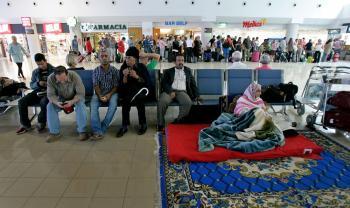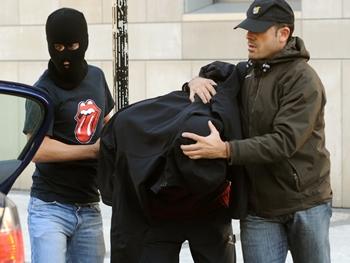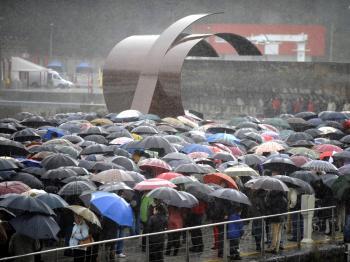LAS PALMAS, Spain—Spanish tuna trawler Alakrana and its 36 crew members were released on Nov. 17 after being held hostage by pirates for one and a half months, and after paying a $3.5 million ransom.
The ship was hijacked by pirates in Somali waters on Oct. 2. Crew members were reported to be in good health.
Spanish warships Canarias and Méndez Núñez had orders to detain the hijackers before they could reach the beach, just 1.7 miles away.
To signal the pirates’ departure from the Alakrana, captain of the tuna trawler, skipper Ricardo Blach called the ship owner who had been stationed in Nairobi ever since the beginning of the negotiations.
Immediately, two helicopters and three speedboats were launched to capture the pirates’ boat. One of the Spanish helicopters opened fire against the boat’s motor and wheel. The pirates managed to reach the coast and evade capture by mingling with the civilians on the beach. Some are believed to be wounded, though reports have not been confirmed.
In response to increased acts of piracy and armed robbery off the coast of Somalia, the European Union initiated the military operation EUNAVFOR Somalia (operation “Atalanta”) in December 2008. The operation was launched to protect vessels of the World Food Programme, delivering food aid to displaced people in Somalia, and to protect vessels off the Somali coast from acts of piracy.
The ship was hijacked by pirates in Somali waters on Oct. 2. Crew members were reported to be in good health.
Spanish warships Canarias and Méndez Núñez had orders to detain the hijackers before they could reach the beach, just 1.7 miles away.
To signal the pirates’ departure from the Alakrana, captain of the tuna trawler, skipper Ricardo Blach called the ship owner who had been stationed in Nairobi ever since the beginning of the negotiations.
Immediately, two helicopters and three speedboats were launched to capture the pirates’ boat. One of the Spanish helicopters opened fire against the boat’s motor and wheel. The pirates managed to reach the coast and evade capture by mingling with the civilians on the beach. Some are believed to be wounded, though reports have not been confirmed.
In response to increased acts of piracy and armed robbery off the coast of Somalia, the European Union initiated the military operation EUNAVFOR Somalia (operation “Atalanta”) in December 2008. The operation was launched to protect vessels of the World Food Programme, delivering food aid to displaced people in Somalia, and to protect vessels off the Somali coast from acts of piracy.
_medium.jpg&w=1200&q=75)
.jpg&w=1200&q=75)
.jpg)



